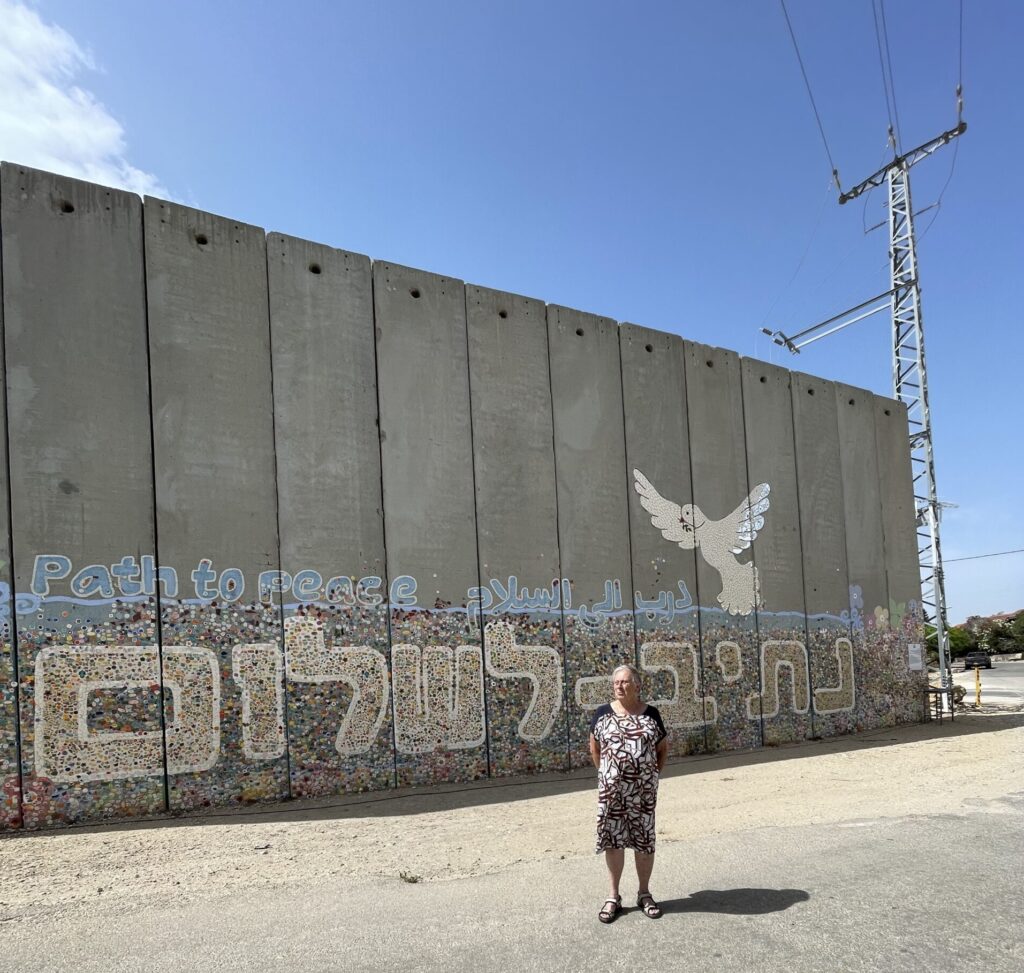I came to Israel from England as a child with my parents in 1951, a Zionist family believing that this is the home of the Jewish people. Growing up here, being taught at school about Jewish history: the Diaspora, the Holocaust and the establishment of Israel as the homeland of the Jewish people. As far as I was concerned, everything was in our favour, we could do nothing wrong.
It wasn’t until much later, after spending close to five years in Egypt, that I was first confronted with another side of the story regarding the conflict In the Middle East. (My husband was an agricultural consultant attached to the Israeli Embassy, introducing new methods of irrigation and varieties of crops to the Central Delta and the Western Desert.)
Many Israelis say that an Arab is an Arab, regardless of being from Egypt, Jordan, Lebanon or Syria. It was then that I realized that this is not the case at all — an Egyptian is an Egyptian, a Lebanese is Lebanese and a Palestinian is a Palestinian.
Many will say that Arabs have the whole Arab world open to them, and we, the Jewish people have only Israel. Is this really true? I began to wonder.
I met Palestinians living in Egypt who were never considered one hundred percent Egyptian. I heard their stories of having to leave their homes when Israel was established. I suddenly realized that my independence, my redemption, was in fact someone else’s disaster.
I am by no means saying that this is not my home, but I understand now that it is someone else’s land too. How do I convince my own people, and the people on the other side, that we both have a legitimate right to live here with equal rights, because we both belong here?

Each one of us can point to some time in history when we lived here, or even ruled here. The question is how far in history do we look back, and at what point do we look forward? I took it upon myself to listen, learn and understand. I met many Palestinians and saw them as people, not merely as enemies, as people we can talk to and recognize as partners working toward a better peaceful life for us all.
The next step has been to introduce people from both sides, so they have a similar opportunity I had that completely changed my outlook. Drama groups from schools in Israel and in Gaza work together through joint lessons over Zoom. Similarly, music and dance groups make videos together and show them very discreetly in various places before different audiences.
Every Friday, we meet close to the border and talk to our friends in Gaza over WhatsApp or Messenger, reaching out to one another. Another project is helping people in Gaza get permits to come across through Israel to the West Bank, East Jerusalem, or Jordan. I do all this in the belief that by giving my neighbour hope and something to look forward to, I am making peace more possible.
When people call me a dreamer I say, no, I am not the dreamer here. The dreamers are those Palestinians who say that they are going to drive us into the sea. The dreamers are those Israelis who say that violence, destruction, pain and death, another 50 years of occupation and 20 years of blockade, will eventually bring them to their knees begging for peace. What I say can be for real. Admittedly, there will have to be compromise and trust, on both sides, but this is not impossible.
Roni Keidar